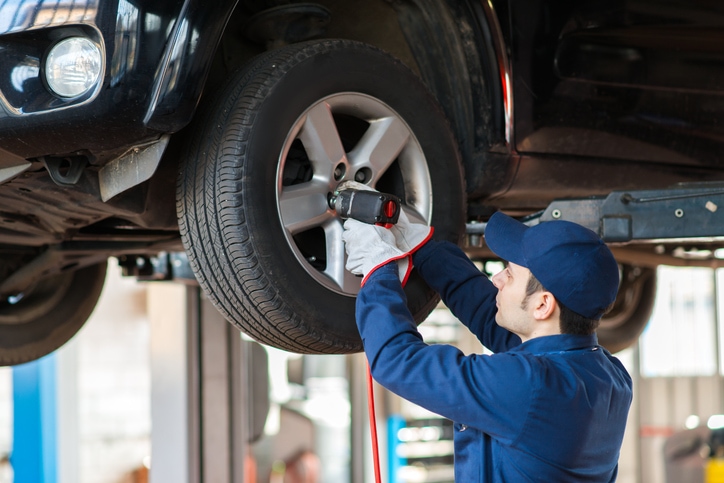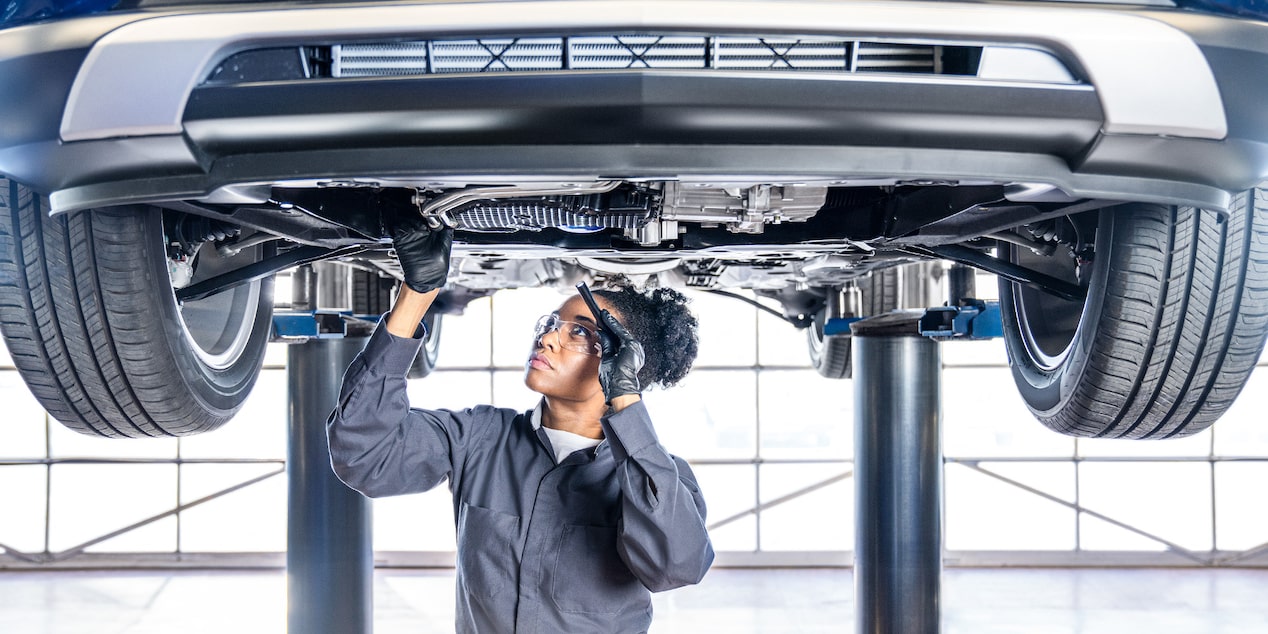All Categories
Featured
Your car relies on numerous liquids to keep its components running smoothly and efficiently. Comprehending the duty of each fluid and staying aggressive in maintenance ensures your automobile operates at its best.
![]()
Why It Matters: Without proper lubrication, engine parts can grind versus each various other, causing considerable damages. Maintenance Tips: Check your oil level monthly making use of the dipstick and top off if needed. Change the oil and filter according to your automobile's service timetable, typically every 3,000 to 7,500 miles depending on the oil kind and driving conditions. 2. Coolant: Regulating Engine Temperature. Coolant, also called antifreeze, assists preserve your engine's temperature level within the optimal array. It prevents overheating during heat and freezing during cool conditions.
Why It Issues: Abject or insufficient coolant can bring about engine overheating, which can trigger extreme damage. Upkeep Tips: Check the coolant reservoir frequently and try to find leaks or staining. Flush and replenish coolant as advised, typically every two to five years. 3. Brake Liquid: Reliable Preventing Power. Brake liquid is vital for your car's braking system, transferring the force from your foot on the brake pedal to the brakes themselves. Over time, brake fluid can take in wetness, which decreases its performance.
Why It Matters: A jeopardized braking system can badly affect your safety. Maintenance Tips: Examine the brake fluid tank and make certain the degree remains within the indicated array. Change the liquid every a couple of years or as needed. 4. Transmission Fluid: Smooth Gear Shifts. Transmission fluid oils the transmission parts and makes sure smooth gear modifications. It also avoids getting too hot by cooling the system.
![]()
Why It Issues: Disregarded transmission fluid can cause gear slippage, overheating, and even overall transmission failure. Maintenance Tips: Monitor the liquid's level and problem regularly. Replace it according to the producer's referrals, often every 30,000 to 60,000 miles. 5. Power Guiding Liquid: Simple And Easy Maneuvering. Power guiding fluid helps in accurate and smooth guiding. Low or contaminated fluid can make guiding extra difficult, placing stress on the system.
Why It Issues: Poor guiding responsiveness can compromise your control over the lorry. Maintenance Tips: Consistently examine the fluid level and color, and top it off as required. Listen to leakages or unusual guiding noises. 6. Windscreen Washing Machine Liquid: Clear Presence. While it doesn't impact performance, windscreen washing machine liquid is crucial for keeping exposure, specifically in damaging conditions.
![]()
Why It Matters: A tidy windshield guarantees you can see plainly, lowering the risk of mishaps. Upkeep Tips: Fill up the washer fluid storage tank regularly and use a formula fit to your environment to avoid cold or streaking. Why Regular Liquid Upkeep is Necessary. Optimal Efficiency: Proper fluid degrees and quality make certain all systems operate efficiently. Safety Assurance: Brake and power guiding fluids straight affect your ability to regulate the lorry. Expense Financial savings: Preventative upkeep avoids pricey repair work by capturing potential problems early. Long life: Liquids in good condition help prolong the life of crucial elements, consisting of the engine and transmission. Quick Tips for Effective Liquid Maintenance. Follow the Guidebook: Refer to your car's proprietor manual for certain upkeep intervals. Be Alert for Leaks: Pools under your vehicle can show fluid leaks that need prompt interest. Use Recommended Products: Stick to fluids recommended by your lorry producer to stay clear of compatibility problems. Take Notice Of Indication: Dashboard signals or uncommon performance can indicate fluid troubles. Verdict. Keeping your vehicle's fluids is just one of the most basic methods to maintain it running successfully and safely. Whether it's engine oil, coolant, or brake liquid, each plays a crucial role in your car's general health. Routine checks, combined with timely replacements, can prevent failures, improve performance, and expand the life of your automobile. Keep proactive, and you'll delight in a smoother and safer driving experience for many years to come.

- Engine Oil: The Lifeline of Your Engine. Engine oil plays a critical function in oiling the engine's moving parts, minimizing rubbing, and safeguarding versus wear and overheating. Gradually, oil comes to be or degrades polluted with particles, which can compromise its efficiency.
Why It Matters: Without proper lubrication, engine parts can grind versus each various other, causing considerable damages. Maintenance Tips: Check your oil level monthly making use of the dipstick and top off if needed. Change the oil and filter according to your automobile's service timetable, typically every 3,000 to 7,500 miles depending on the oil kind and driving conditions. 2. Coolant: Regulating Engine Temperature. Coolant, also called antifreeze, assists preserve your engine's temperature level within the optimal array. It prevents overheating during heat and freezing during cool conditions.
Why It Issues: Abject or insufficient coolant can bring about engine overheating, which can trigger extreme damage. Upkeep Tips: Check the coolant reservoir frequently and try to find leaks or staining. Flush and replenish coolant as advised, typically every two to five years. 3. Brake Liquid: Reliable Preventing Power. Brake liquid is vital for your car's braking system, transferring the force from your foot on the brake pedal to the brakes themselves. Over time, brake fluid can take in wetness, which decreases its performance.
Why It Matters: A jeopardized braking system can badly affect your safety. Maintenance Tips: Examine the brake fluid tank and make certain the degree remains within the indicated array. Change the liquid every a couple of years or as needed. 4. Transmission Fluid: Smooth Gear Shifts. Transmission fluid oils the transmission parts and makes sure smooth gear modifications. It also avoids getting too hot by cooling the system.

Why It Issues: Disregarded transmission fluid can cause gear slippage, overheating, and even overall transmission failure. Maintenance Tips: Monitor the liquid's level and problem regularly. Replace it according to the producer's referrals, often every 30,000 to 60,000 miles. 5. Power Guiding Liquid: Simple And Easy Maneuvering. Power guiding fluid helps in accurate and smooth guiding. Low or contaminated fluid can make guiding extra difficult, placing stress on the system.
Why It Issues: Poor guiding responsiveness can compromise your control over the lorry. Maintenance Tips: Consistently examine the fluid level and color, and top it off as required. Listen to leakages or unusual guiding noises. 6. Windscreen Washing Machine Liquid: Clear Presence. While it doesn't impact performance, windscreen washing machine liquid is crucial for keeping exposure, specifically in damaging conditions.

Why It Matters: A tidy windshield guarantees you can see plainly, lowering the risk of mishaps. Upkeep Tips: Fill up the washer fluid storage tank regularly and use a formula fit to your environment to avoid cold or streaking. Why Regular Liquid Upkeep is Necessary. Optimal Efficiency: Proper fluid degrees and quality make certain all systems operate efficiently. Safety Assurance: Brake and power guiding fluids straight affect your ability to regulate the lorry. Expense Financial savings: Preventative upkeep avoids pricey repair work by capturing potential problems early. Long life: Liquids in good condition help prolong the life of crucial elements, consisting of the engine and transmission. Quick Tips for Effective Liquid Maintenance. Follow the Guidebook: Refer to your car's proprietor manual for certain upkeep intervals. Be Alert for Leaks: Pools under your vehicle can show fluid leaks that need prompt interest. Use Recommended Products: Stick to fluids recommended by your lorry producer to stay clear of compatibility problems. Take Notice Of Indication: Dashboard signals or uncommon performance can indicate fluid troubles. Verdict. Keeping your vehicle's fluids is just one of the most basic methods to maintain it running successfully and safely. Whether it's engine oil, coolant, or brake liquid, each plays a crucial role in your car's general health. Routine checks, combined with timely replacements, can prevent failures, improve performance, and expand the life of your automobile. Keep proactive, and you'll delight in a smoother and safer driving experience for many years to come.
Latest Posts
Grab Limited-Time Auto Repair Specials in Chicago at Montclare Auto Repair
Published en
1 min read
Discover Budget-Friendly Auto Repairs with Montclare’s Monthly Service Specials
Published en
1 min read
Explore the Top Auto Repair Discounts in Montclare, Chicago
Published en
1 min read
More
Latest Posts
Grab Limited-Time Auto Repair Specials in Chicago at Montclare Auto Repair
Published Jun 01, 25
1 min read
Discover Budget-Friendly Auto Repairs with Montclare’s Monthly Service Specials
Published May 24, 25
1 min read
Explore the Top Auto Repair Discounts in Montclare, Chicago
Published May 24, 25
1 min read